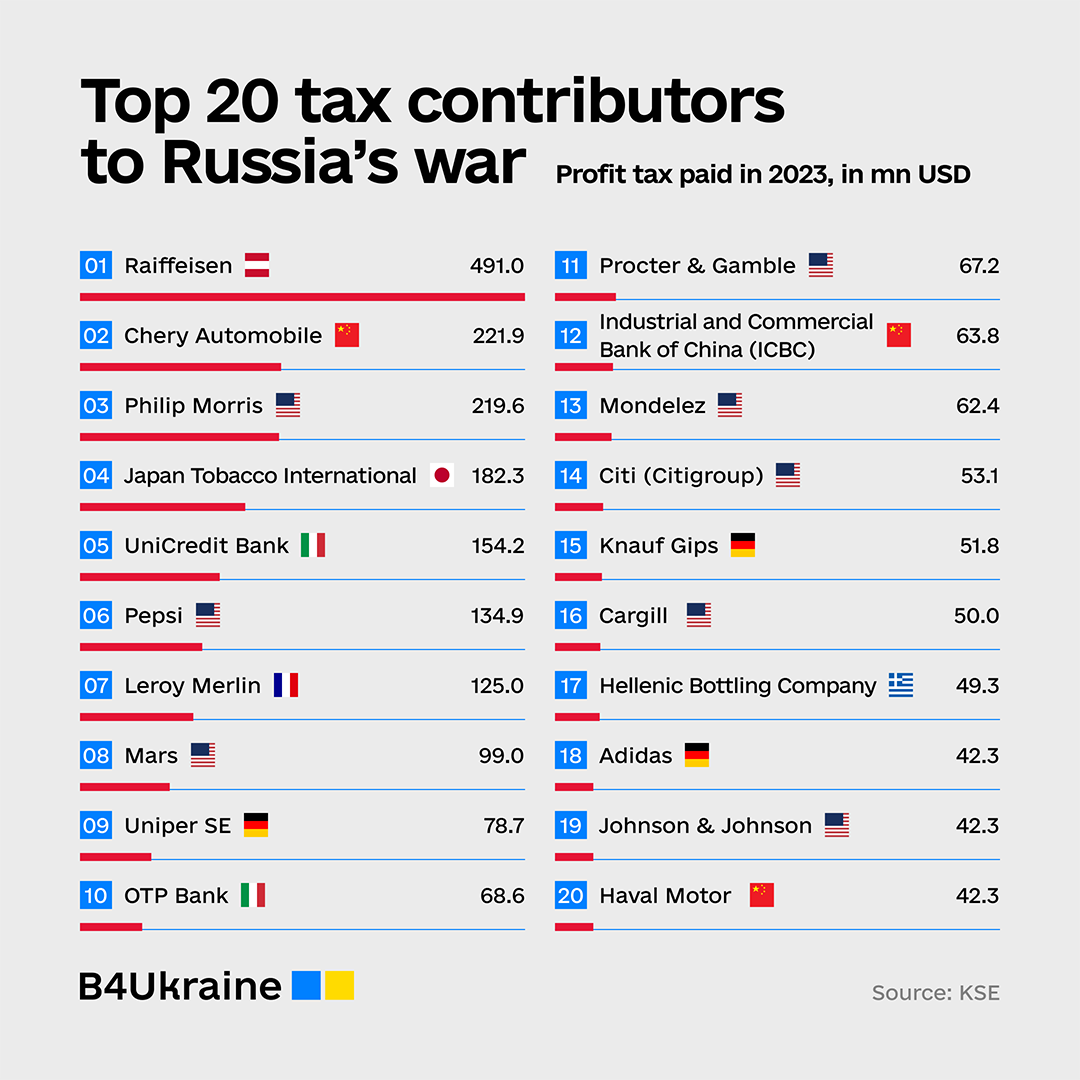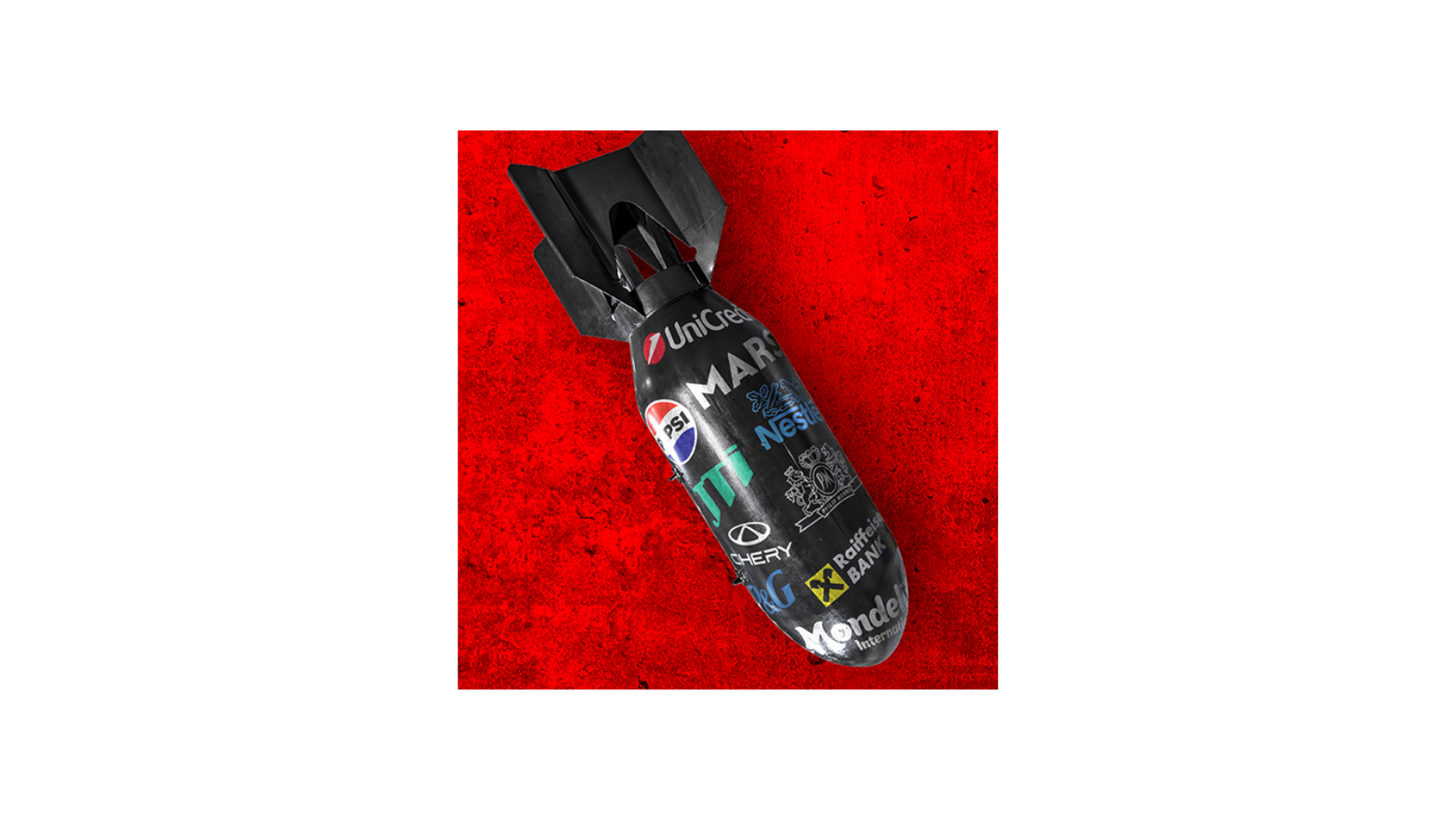A report by the B4Ukraine coalition, in collaboration with the Kyiv School of Economics and Squeezing Putin, reveals that nearly three years after the war in Ukraine began, 1,600 multinationals are still operating in Russia. These companies generated $196.9 billion in revenue in 2023 and paid $21.6 billion in taxes, effectively contributing to financing the war. Since 2022, these businesses have paid $41.6 billion into the Russian budget—nearly one-third of the estimated military budget for 2025.
Companies from G7 and European Union member states are among the largest tax contributors, despite their financial support for Ukraine. The consumer goods sector (Mars, Nestlé, Procter & Gamble) and the food industry (PepsiCo, Mondelez) dominate, generating $587.5 billion in revenue.
The report highlights a paradox: for every $10 of bilateral aid provided by G7 countries to Ukraine, their companies are still contributing $1 to the Russian budget.
Russia plans to increase its corporate tax rate from 20% to 25% in 2025, further boosting foreign companies’ contributions. B4Ukraine is calling for the immediate withdrawal of companies from the Russian market and urging European and G7 governments to impose sanctions to deter businesses from indirectly supporting the war.
“Despite the massive atrocities committed by Russia and over 150,000 documented war crimes in Ukraine, far too many Western companies continue to operate in Russia, strengthening its war economy, undermining international law, and contradicting the foreign policies of their governments. It’s time for them to leave,” said Nezir Sinani, executive director of the B4Ukraine coalition.
Among the French companies mentioned, Leroy Merlin, part of the Mulliez group—which also owns Auchan and Decathlon—remains at the forefront of controversies over their operations in Russia.
The B4Ukraine coalition, which includes Stand With Ukraine, is made up of over 90 organizations working to cut off funding for Russia’s war against Ukraine. The coalition also urges European governments to implement clear regulations and dissuasive sanctions, such as financial penalties, restrictions on access to public markets, and exclusion from contracts for companies maintaining operations in Russia.


